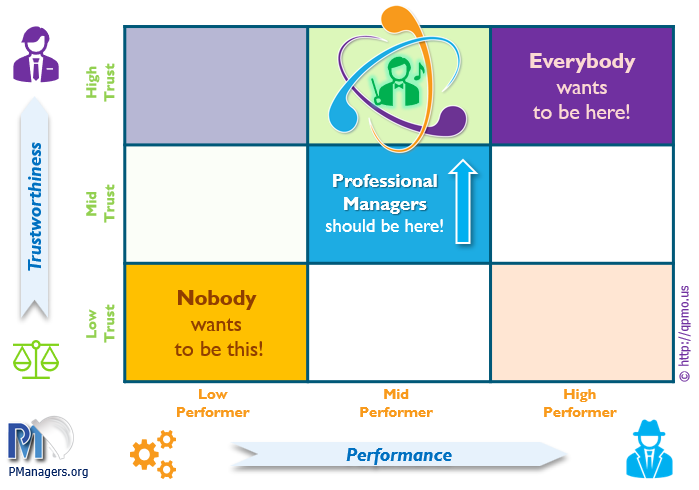Are you in a Relation-based or performance-Based Organization?
As a Professional Manager, you would know how to navigate through the priorities and expectations of your stakeholders. In this article, we will explore why it is important to know if you are in a Relation-based or performance-Based Organization; and how that might affect your relations with stakeholders and performance in the team!
Why is it important to know the difference between a Relation-based or performance-Based Organization?
As a manager that has worked in both a Relation-based and performance-Based Organization, a Professional Manager understands that the business mission priorities and core values change dramatically! In addition, the reward and recognition system for team evaluation will differ significantly, when you work in an organization that doesn’t value performance over relations…
What is the difference between a Relation-based or performance-Based Organization?
A relation-based organization and a performance-based organization are two different approaches to how an organization operates and manages its employees.
In a relation-based organization, the focus is on building strong relationships between the employer and employees, and between employees themselves. This approach emphasizes trust, loyalty, and communication. Such organizations tend to have a more relaxed work environment and may make decisions based on employee satisfaction and happiness.
In a performance-based organization, the focus is on achieving specific performance objectives and outcomes. This approach emphasizes clear goals and targets, performance metrics, and accountability. Such organizations tend to have a more formal work environment and may make decisions based on data and results.
It’s worth noting that many organizations incorporate aspects of both models, depending on the business and the context. It is not necessarily better or worse to be relation-based or performance-based, it’s about finding the balance that works for your organization and context.
Be a Mid-performer with High-Trust Team Member
Although many organizations claim that they value both equally, watch this interesting video from Simon Sinek to learn why it is better to be Mid-performer with Hight-trust in any organization.
Here is what Simon has to say: I’ve worked with the Navy SEALs and I asked them “how do you pick the guys that go in SEAL Team 6?” Because they’re the best of the best of the best! They drew a graph for me and on one side the word performance and on the other side they wrote the word trust!
The way they define the terms is performance on the battlefield and performance off the battlefield. So, Performance is your skills, this is what makes your quarterly earnings, whatever you translate into the right performance in its traditional sense!
Trust is how are you off the battlefield. What kind of person are you? The way they put it is “I’m going to trust you with my life but do I trust you with my money and my wife?”
This is what they told me, nobody wants this person: The low performer & low trust, of course!
Of course, everybody wants this person a high performer of high trust!
But, what they learned is that the high performer of low trust is a toxic leader and a toxic team member and people would rather have a medium performer of high trust; sometimes even a low performer of high trust!
The problem in business is that we have lopsided metrics, we have a million-in-one metrics to measure someone’s performance and negligible to no metrics to measure someone’s trustworthiness!
So what we end up doing is promoting or bonusing toxicity in our businesses which is bad for the long game, because it eventually destroys the whole organization and its “Quality Culture!”
The irony is it’s unbelievably easy to find High-performers with Low-Trust, people go to any team and say who’s the A**hole and they’ll all point to the same person. Equally, if you go to any team and say, who do you trust more than anybody else who’s always got your back when the chips are down they will be there with you; they will also all point to the same person: the mid-performer with high-trustworthiness!
It’s the best gifted natural leader who’s getting who’s creating an environment for everybody else to succeed and they may not be your most individual highest performer but that person you better keep on your team.
Clifton Strength to identify your VIP team players!
Using a Clifton Strength or other similar psychological evaluation and assessments help your organization identify the diversity available in your team. Being inclusive to leverage all the strengths and empowering them in the right position is a key strength of a Professional Manager.
As part of the Professional Manager training, managers should understand, respect, and learn how to manage and develop their team for success. Navigating through the Tuckerman Ladder would be much easier and faster, with the help of these evaluations!

Are you in a Relation-based or performance-Based Organization? Read More »
